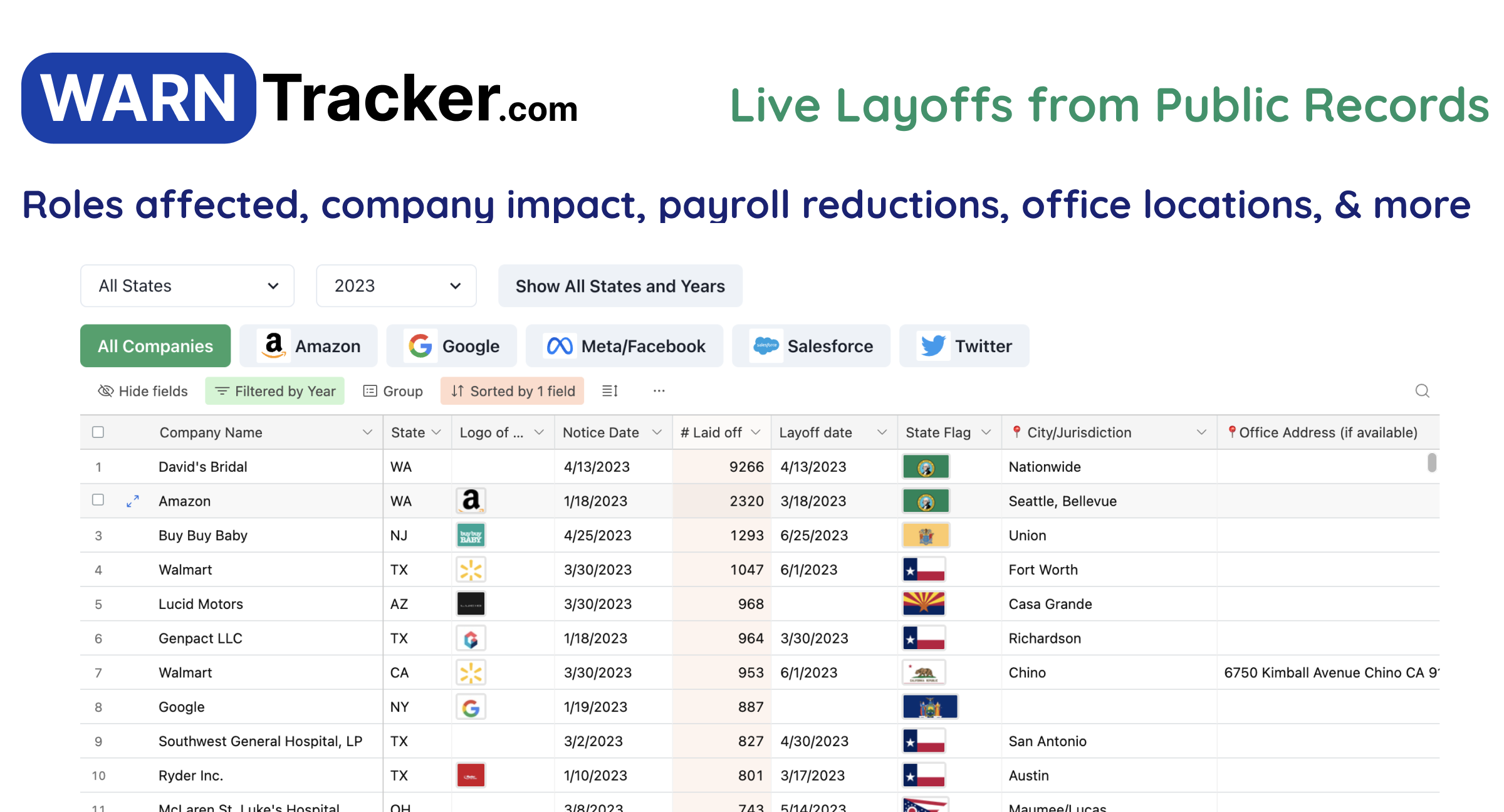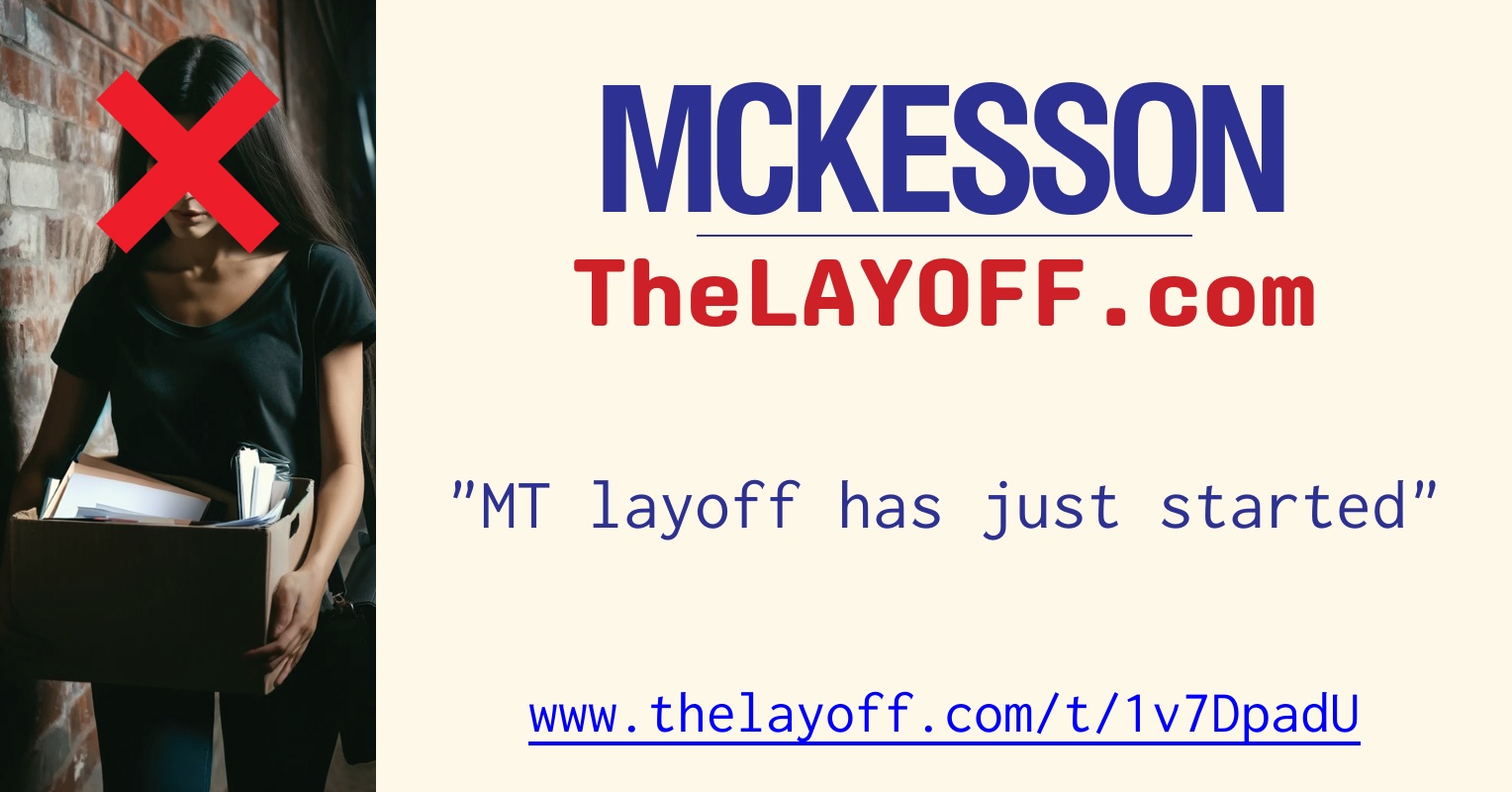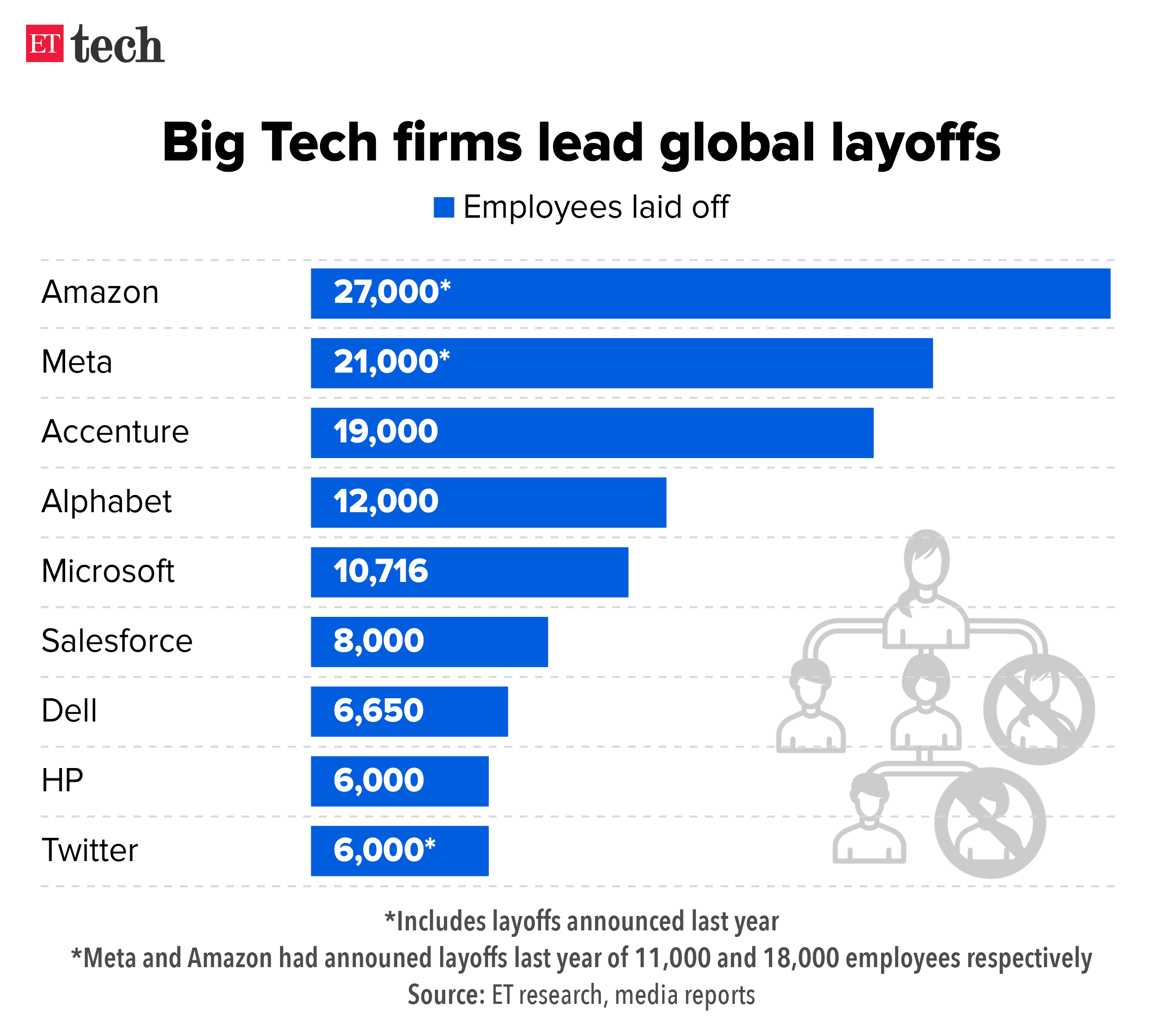McKesson Layoffs September 2024 - What It Means
There's been a lot of talk, very recently, about some big changes possibly coming to McKesson, particularly regarding potential job reductions around September 2024. People are naturally curious, and a bit worried, about what this might mean for those who work there and for the broader healthcare supply world. It's a situation that, you know, tends to make everyone sit up and pay attention.
When a company as large as McKesson, which plays a really significant part in getting medical supplies and medicines where they need to go, faces these sorts of discussions, it sends ripples. We're talking about a business that has a huge reach, and so any shifts in its structure or workforce are going to be felt by many, from individual employees and their families to the whole network of care providers they support.
This piece aims to look at the general picture of what happens when large companies like this go through periods of adjustment, what kinds of things might lead to such decisions, and how these moments affect the people involved, all without getting into specific details that aren't publicly confirmed. It's about trying to make sense of what can be a very unsettling time for many.
Table of Contents
- What Leads to Changes in Big Companies?
- The Human Side of Corporate Shifts - McKesson Layoffs September 2024
- How Do Companies Typically Handle Workforce Adjustments?
- Looking Back - A Glimpse into McKesson's Past Operations
- What Support Might Be Available During Such Times?
- Are There Broader Trends Influencing McKesson Layoffs September 2024?
- Thinking About the Future of Work in Healthcare
- What Can Individuals Do When Facing Uncertainty?
What Leads to Changes in Big Companies?
Big companies, you know, they're kind of like very large ships. They have to adjust their course pretty often to stay on track. Sometimes, these adjustments mean making some difficult choices about their staff. It's a bit like, say, the economy shifts, or maybe new technologies come along that change how work gets done. For example, if there's a big push for automation, certain tasks that people used to do might now be handled by machines. This can, in a way, change the kinds of jobs a company needs to have.
Then there are things like market conditions. If the demand for certain products or services goes down, or if new competitors pop up, a company might need to rethink its operations. They might look at where they can be more efficient, or where they might need to reduce costs to stay competitive. This is often a really complex puzzle for them to figure out, basically, how to keep the business healthy in the long run. It's not just about one thing, but usually a whole mix of pressures that build up over time, sometimes quite suddenly.
Also, a company might decide to focus on a different part of its business, or perhaps sell off some parts that aren't performing as well. When this happens, the teams working in those areas might find their roles are no longer needed. It's a strategic move, very much about the company's overall direction and where it sees its best chances for success in the years to come. These sorts of internal reorganizations, as a matter of fact, happen quite often in the corporate world, even if they aren't always widely talked about.
Sometimes, companies also go through mergers or acquisitions. When two big businesses come together, there's often an overlap in roles. You might have two finance departments, for instance, or two human resources teams. In such cases, the combined company will usually streamline things to avoid duplication, which can, unfortunately, lead to some roles becoming redundant. It's a natural part of integrating two separate organizations into one, though it's still a very tough process for those involved, as you can imagine.
The Human Side of Corporate Shifts - McKesson Layoffs September 2024
When there's talk about job changes, especially something like potential McKesson layoffs in September 2024, it's easy to forget that behind every number is a person, a family, and a whole life. These are not just business decisions; they have a very real, human impact. People feel a lot of different things when their job security is uncertain – worry, sadness, sometimes even anger. It's a period of significant stress, and that's something that, honestly, affects more than just the individual employee.
The ripple effect goes out into communities, too. When a large employer like McKesson, which supports many families, makes these kinds of adjustments, it can affect local businesses, schools, and even the general feeling of well-being in an area. It's not just about the direct loss of income for those affected; it's also about the disruption to routines, the need to find new work, and the emotional toll that takes. So, it's pretty much a situation that calls for a lot of understanding and support from everyone involved.
For those who remain with the company, there can also be a sense of unease, a sort of survivor's guilt, or perhaps a heavier workload as fewer people are doing the same amount of work. This can, in some respects, lead to changes in morale and how people feel about their jobs. Companies that handle these situations well usually focus on clear communication and providing good support for everyone, both those leaving and those staying. It's about recognizing that people are at the heart of the business, even during difficult times, and that's a really important thing to keep in mind.
How Do Companies Typically Handle Workforce Adjustments?
When companies need to make changes to their workforce, they usually try to follow a process that is as fair and supportive as possible, though it's never easy. First, they often spend a lot of time planning, trying to figure out exactly what changes are needed and why. This involves looking at the business's current state and its future goals. They also think about who might be affected and how to communicate the news in a way that's respectful and clear. This initial planning phase is, you know, quite extensive, as they want to get it right.
Then comes the communication part. This is often done directly with the affected individuals, usually in person if possible. They explain the reasons behind the decision and what it means for that person's role. It's a very difficult conversation to have, for both sides, but honesty is typically seen as the best approach. They also try to provide information about severance packages, benefits continuation, and any other support that might be offered. This is, basically, about giving people the full picture so they can start to plan their next steps.
After the initial conversations, many companies offer what's called outplacement support. This might include things like help with writing resumes, practicing for job interviews, or even career counseling. The idea is to help people transition to new opportunities as smoothly as possible. Some companies also offer access to mental health resources, because they recognize the emotional impact of losing a job. It's a way to show that, even though the business decision is tough, they still care about the well-being of their former employees, which is pretty important.
For the people who remain, companies usually try to provide reassurance and clarity about the future. They might hold town hall meetings or send out internal communications to explain the new structure and what it means for the remaining teams. This helps to reduce anxiety and rebuild confidence. It's about making sure everyone understands the company's direction and feels secure in their roles going forward. This continuous communication, actually, is key to maintaining morale and productivity after a big change.
Looking Back - A Glimpse into McKesson's Past Operations
McKesson, as a company, has a really long and varied history. They've been around for a very long time, adapting to different market conditions and expanding into various areas of healthcare and beyond. It's a business that has seen many changes over the decades, which is just a fact of corporate life for a company of its size and age. This history includes all sorts of business ventures and, like many large organizations, moments where they've been involved in legal matters that shed light on their diverse operations.
For instance, if we look back a bit, you find records that show the company, or parts of it, dealing with different business aspects. There's a particular legal document from 2009, for example, that mentions a case: "2009) affirming mckesson water products company v,Of taxation , 23 n.j". This little piece of information tells us that at one point, McKesson had a "water products company" and was involved in legal discussions related to taxation in New Jersey. It just goes to show that a company like McKesson has had a wide range of activities over its many years, well beyond what we might typically associate with them today.
This historical detail about a "water products company" and a tax case from over a decade ago highlights how large corporations can have many different facets to their business over time. They tend to evolve, acquiring and divesting various parts of their operations based on what makes sense for their overall strategy. So, while today we mostly think of McKesson in terms of healthcare distribution, its past includes, apparently, other kinds of ventures and their related legal considerations, which is quite interesting to consider.
Understanding a company's past, including its various business lines and any legal proceedings, helps paint a fuller picture of its long journey. It shows that adapting and sometimes shedding parts of the business is, in a way, a continuous process for large, established entities. This long history of change and adaptation is something that, you know, characterizes many big companies, not just McKesson. It's part of how they stay relevant and continue to operate over many, many years.
What Support Might Be Available During Such Times?
When a company goes through a period of workforce adjustment, especially if it involves something like potential McKesson layoffs in September 2024, there are usually different kinds of support systems put in place. Companies often try to offer a package of assistance to help people get back on their feet. This might include, first and foremost, a severance payment. This money is meant to provide a financial cushion for a period while someone looks for new work, which is pretty much essential for many families.
Beyond the immediate money, there's often help with things like health benefits. Companies might extend health insurance coverage for a certain period after someone's last day, or provide information about how to get new coverage. This is a very important consideration, as access to healthcare is something people worry about a lot during times of job change. It’s about trying to make the transition a little less stressful, which, honestly, can make a real difference.
Many organizations also provide what's known as outplacement services. These services are designed to help people prepare for their job search. This could mean workshops on how to create a strong resume, tips for interviewing, or even coaching on how to use professional networking sites. Some services might even offer direct connections to recruiters or job openings. It's basically like having a professional guide to help you find your next opportunity, and that can be really valuable.
Sometimes, companies also offer access to counseling services or mental health support. Losing a job can be a very emotional experience, and having someone to talk to can be incredibly helpful. This kind of support acknowledges the personal side of these business decisions. It’s about recognizing that people need more than just financial help during these moments; they need emotional care too. So, these resources are, you know, a very thoughtful addition to any support package.
Are There Broader Trends Influencing McKesson Layoffs September 2024?
It's fair to say that any big company's decisions, including something like potential McKesson layoffs in September 2024, don't happen in a vacuum. There are always bigger trends at play in the economy and in the specific industry the company operates within. For healthcare, for example, there's a constant push for efficiency and cost control. Healthcare costs are always a big topic, and businesses in this sector are constantly looking for ways to deliver services more affordably, which can sometimes lead to structural changes.
Another big trend is the increasing use of technology and automation. From managing supply chains with advanced software to using artificial intelligence for data analysis, technology is changing how work is done across almost every industry. This can mean that some roles become less necessary, while new roles requiring different skills emerge. It's a continuous shift, and companies like McKesson, which are at the heart of healthcare distribution, are pretty much always adapting to these technological advancements, so it's a constant consideration.
The overall economic climate also plays a significant part. If there's a slowdown in the economy, or if consumer spending habits change, businesses might see less demand for their products or services. This can put pressure on their finances, leading them to look for ways to reduce expenses. It's a bit like, say, if people are spending less on healthcare services, the entire supply chain feels that impact. So, the broader economic health of a country or even the world can, in a way, influence decisions made by large companies.
Finally, there are changes in regulations and policies within the healthcare sector itself. New laws or shifts in how healthcare is funded or delivered can significantly impact how companies operate. They might need to restructure to meet new compliance requirements or to take advantage of new opportunities created by policy changes. These external factors are, basically, always on the minds of company leaders as they plan for the future, and they can certainly influence decisions about workforce size and structure.
Thinking About the Future of Work in Healthcare
The healthcare world is always changing, and so is the kind of work that needs doing within it. We're seeing, for instance, a move towards more personalized care, more digital health tools, and a greater focus on preventative measures. This means that the skills needed by people working in healthcare, including those at companies like McKesson, are also changing. There's a growing need for people who can work with data, who understand digital systems, and who can help integrate technology into patient care. This is, truly, a significant shift.
Automation, as we mentioned, is also a big part of this future. Tasks that are repetitive or involve moving physical items might increasingly be handled by machines or robots. This doesn't mean there will be no jobs, but rather that the jobs themselves will evolve. People might focus more on tasks that require human judgment, creativity, problem-solving, and direct interaction. So, it's about people working alongside technology, rather than being replaced by it, which is, you know, a different way of looking at things.
There's also a growing emphasis on flexibility in work arrangements. More companies are exploring remote work options, hybrid models, or even more project-based roles. This can offer both companies and employees more adaptability. For companies, it might mean access to a wider talent pool, and for employees, it could mean a better work-life balance. It's a trend that, arguably, gained a lot of speed recently and seems like it's here to stay for quite some time.
Ultimately, the future of work in healthcare is likely to be one where continuous learning is very important. As new technologies and approaches emerge, people will need to keep updating their skills to stay relevant. Companies that invest in training their employees and helping them adapt to new ways of working are often more successful in the long run. It's about building a workforce that can, essentially, keep pace with the rapid changes in the industry, which is a big task for everyone involved.
What Can Individuals Do When Facing Uncertainty?
When there's talk of job changes, or even if you're just feeling a bit uncertain about your role, there are some really practical steps you can take. First, it's a good idea to update your resume and your professional profiles, like on LinkedIn. Make sure they reflect your most recent skills and accomplishments. This isn't about being negative; it's just about being prepared, which is pretty much always a good strategy. You never know when an opportunity might come up, so having your materials ready is smart.
Next, think about your network. Connect with people you know in your industry, former colleagues, or even people you admire professionally. Let them know you're open to new possibilities or just interested in learning about different roles. Sometimes, the best opportunities come through someone you know, so keeping those connections warm is, actually, quite important. It's about building relationships, not just asking for favors, which is a bit more sustainable.
Consider what new skills might be valuable in your field. Are there online courses you could take? Are there certifications that would make you more attractive to potential employers? Investing in yourself, in a way, is always a good idea. The world of work is constantly changing, so picking up new abilities can give you a real edge. It's about being proactive and taking charge of your own professional growth, which can make you feel more confident, too.
Finally, remember to take care of yourself. Times of uncertainty can be really stressful, so it's important to prioritize your well-being. This might mean getting enough sleep, exercising, spending time with loved ones, or doing hobbies you enjoy. Having a strong support system, whether it's family, friends, or professional counselors, can also make a big difference. It's about staying resilient and remembering that even through tough


